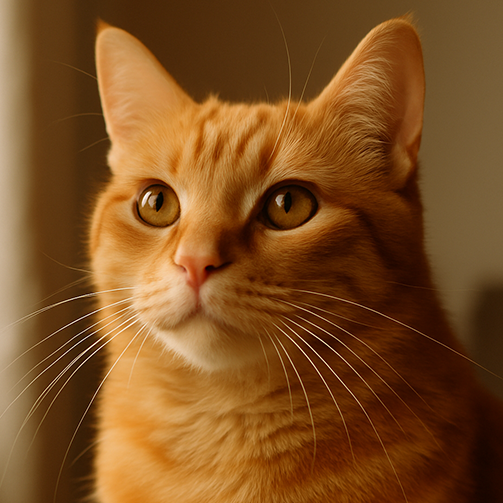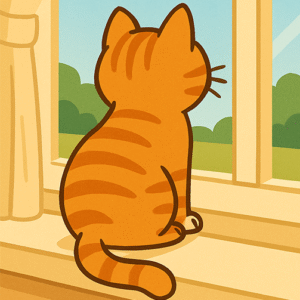More Than Just Purring Companions
For most of us, cats are family. They share our couches, sleep at our feet, and greet us with their quirky personalities every single day. But what if our beloved companions were quietly holding secrets that could help unlock one of the greatest medical mysteries of our time Alzheimer’s disease?
That’s exactly what scientists at the University of Edinburgh have discovered. By studying the brains of senior cats, researchers found surprising similarities between feline dementia and human Alzheimer’s. For cat lovers, this study not only deepens our appreciation of our furry friends but also highlights how their lives are more interconnected with ours than we might imagine.
The Science Behind It
Researchers examined the brains of 25 cats after they passed away. Some of these cats had shown behavioral changes in their final years becoming more vocal at night, seeming lost in familiar places, or showing less interest in play. To many owners, these might have looked like signs of “just getting old,” but the study revealed something far more profound.
The brains of these cats contained buildups of amyloid-beta protein the same sticky plaques that form in the brains of people with Alzheimer’s. They also showed a loss of synapses, the microscopic connections that allow brain cells to “talk” to each other. Without enough synapses, the brain begins to lose its ability to form and retrieve memories.
Even more fascinating, the scientists noticed how certain immune cells in the brain astrocytes and microglia became overactive. These cells normally clean up damaged synapses, but in cats with dementia, they were going into overdrive, pruning away connections too aggressively. This mirrors what happens in human Alzheimer’s, where the brain’s own defense system can unintentionally make the problem worse.
Why This Matters to Cat Lovers
For those of us who share our lives with cats, this research is eye-opening.
Recognizing Signs in Our Pets
If your senior cat starts to seem confused, vocalizes more than usual, or gets stuck in corners of the house, it may not just be “old age.” These can be genuine symptoms of cognitive decline. Knowing this can help you show more patience and compassion and maybe even seek veterinary guidance.
Cats as Natural Models for Human Disease
Scientists often use mice to study Alzheimer’s, but mice rarely develop the disease naturally. Cats, on the other hand, do. This means they could serve as more accurate “natural models” for research, possibly accelerating the discovery of treatments that work for both species.
The Human-Cat Connection Runs Deep
It’s humbling to realize that our cats aren’t just companions; they may actually be key to solving diseases that devastate millions of human families worldwide.
A Cat Lover’s Perspective
Imagine sitting with your 15-year-old tabby as she purrs in your lap. Maybe she forgets where her food bowl is sometimes or meows at the wall late at night. Instead of frustration, what if we saw these moments as windows into the mystery of the aging brain a reminder that she’s walking a path strikingly similar to our own?
This perspective shifts the way we care for senior cats. More enrichment, gentler handling, and greater understanding can transform their final years into a time of comfort and love, rather than confusion and neglect.
Looking Ahead
The study is still in its early stages, and researchers acknowledge that 25 cats are not enough to draw sweeping conclusions. But it’s a powerful start. The more we learn about feline dementia, the closer we may come to breakthroughs for both cats and humans.
For cat lovers, that means our bond with our pets is even more special than we thought. When we look into their eyes, we’re not just seeing affection we may be seeing a reflection of our own future, and the hope that together, we can find answers.
Conclusion: The Silent Teachers
Cats have always been mysterious, with their quiet independence and hidden wisdom. Now, science is proving that they may be silent teachers too guiding us toward a better understanding of Alzheimer’s.
So the next time your senior cat wanders a little aimlessly or seems restless at night, remember: she’s not just “forgetful.” She’s part of a much bigger story one that could one day help heal both feline and human minds.



